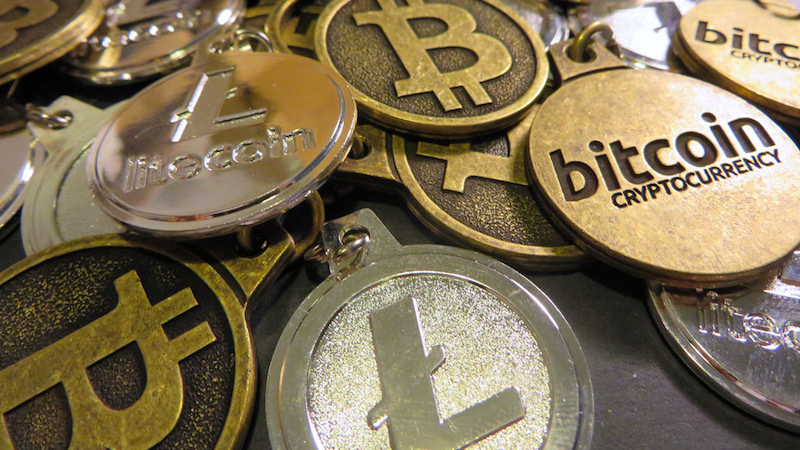The Central Bank of Iran has banned the country’s banks from engaging in all kinds of cryptocurrency dealings.
“According to the order of the Central Bank, any sale or purchase of cryptocurrencies or digital currencies through banking network, credit institutions and its related tools has officially been prohibited” the Iranian Fars news agency cited the statement as reading on April 22.
The statement also added that “digital currencies have the option to be used for money laundering, supporting terrorism and exchange of sums between criminals”.
This decision came while Iran has recently proposed financial reforms and unified its official and open exchange rate market, in an attempt to stop the devaluation of the national currency. The central bank has also set a 10,000 euro ($ 12,250) limit for citizens’ foreign currency holdings in cash outside banks.
The restrictions include a ban on money transfers and swaps beyond the banks, as the national currency, the rial, reached its all-time low earlier this month. The U.S. dollar jumped to 60,000 rials in the open market in Tehran, while it was worth 36,000 rials in mid-September.
Iran is trying to reduce the country’s reliance on U.S. currency, due to fears of a possible return of sanctions crippling financial markets. U.S. President Donald Trump has set May 12 as the deadline for his decision on whether to pull out of the 2015 nuclear deal, which allowed Iran’s economy to re-engage with world trade.
In March 2012, Iranian banks were disconnected from global transaction network SWIFT (the Society for Worldwide Interbank Financial Telecommunication) as international sanctions tightened against Tehran over its disputed nuclear program. However, in February 2016, SWIFT reconnected a number of Iranian banks to its system, allowing them to resume cross-border transactions with foreign banks after the lifting of sanctions in January 2016.
On April 18, the Iranian government ordered the use of the euro instead of the U.S. dollar when giving the national currency’s exchange rate in all official statements and documents.
Cryptocurrency digital payment systems work without a central banking repository and does not rely on a single administrator. The system is peer-to-peer, meaning financial transactions take place between users directly, without an intermediary.
In June 2017, Iran’s National Center of Cyberspace drafted a proposal for regulating digital currencies, and months later, Iran’s Deputy Minister of Information and Communication Technology Amir Hossein Davaee said in October that the ministry has already conducted a number of research studies as part of efforts to prepare the infrastructure to use the world’s first decentralized digital currency Bitcoin inside the country.
Bitcoin's price reached $9,267 on Tuesday to hit a 40-day high, according to data from CoinDesk's Bitcoin Price Index. The price is at its highest point since March 14, when bitcoin dropped $800 within one trading day to reach a one-month low around $8,000. Following the plunge, the cryptocurrency's price declined to as low as $6,593 on March 30, reflecting what is now a 39% gain since that market bottom.







 President Aliyev emphasized the critical role of the North-South Transport Corridor in fostering transport cooperation between Azerbaijan and Russi...
President Aliyev emphasized the critical role of the North-South Transport Corridor in fostering transport cooperation between Azerbaijan and Russi...
 Armenian sappers commenced on Monday mine-clearance operations in the territories adjacent to the Saint Mary Church in village of Voskepar (Armenia...
Armenian sappers commenced on Monday mine-clearance operations in the territories adjacent to the Saint Mary Church in village of Voskepar (Armenia...
 The Mine Action Agency of Azerbaijan (ANAMA) reported on Thursday the discovery of a significant amount of explosives in the Khojavand district of ...
The Mine Action Agency of Azerbaijan (ANAMA) reported on Thursday the discovery of a significant amount of explosives in the Khojavand district of ...
 Russian Foreign Minister Sergei Lavrov has reasserted that Moscow has no intentions to stop the fighting in Ukraine, even if peace talks commence.
Russian Foreign Minister Sergei Lavrov has reasserted that Moscow has no intentions to stop the fighting in Ukraine, even if peace talks commence.
 Iran has refuted reports of alleged damage to Shimon Peres Negev Nuclear Research Centre located southeast of Dimona, Israel, during the recent air...
Iran has refuted reports of alleged damage to Shimon Peres Negev Nuclear Research Centre located southeast of Dimona, Israel, during the recent air...
 Iran’s Foreign Minister, Hossein Amir-Abdollahian, has labeled a foiled Israeli drone attack in certain parts of the country as a "failure" for Isr...
Iran’s Foreign Minister, Hossein Amir-Abdollahian, has labeled a foiled Israeli drone attack in certain parts of the country as a "failure" for Isr...



